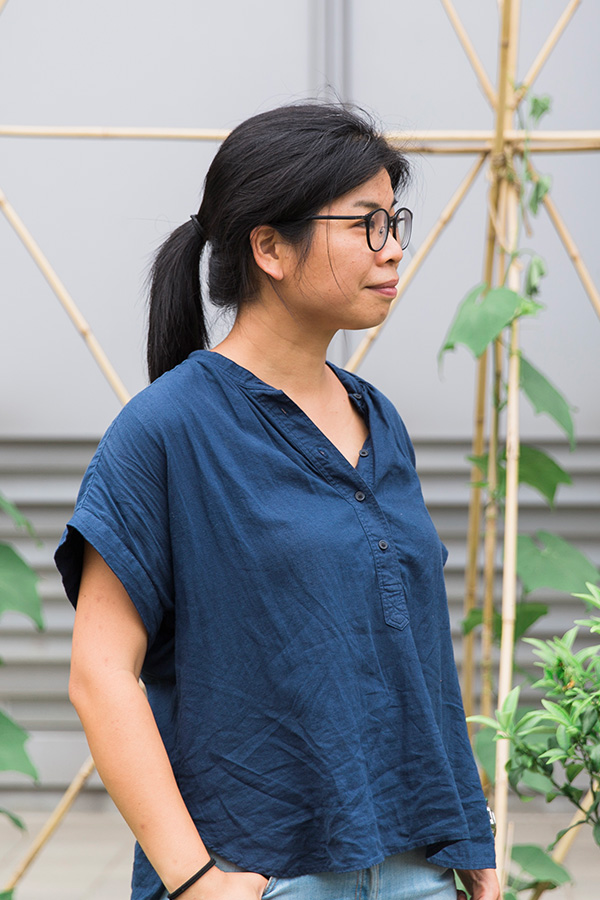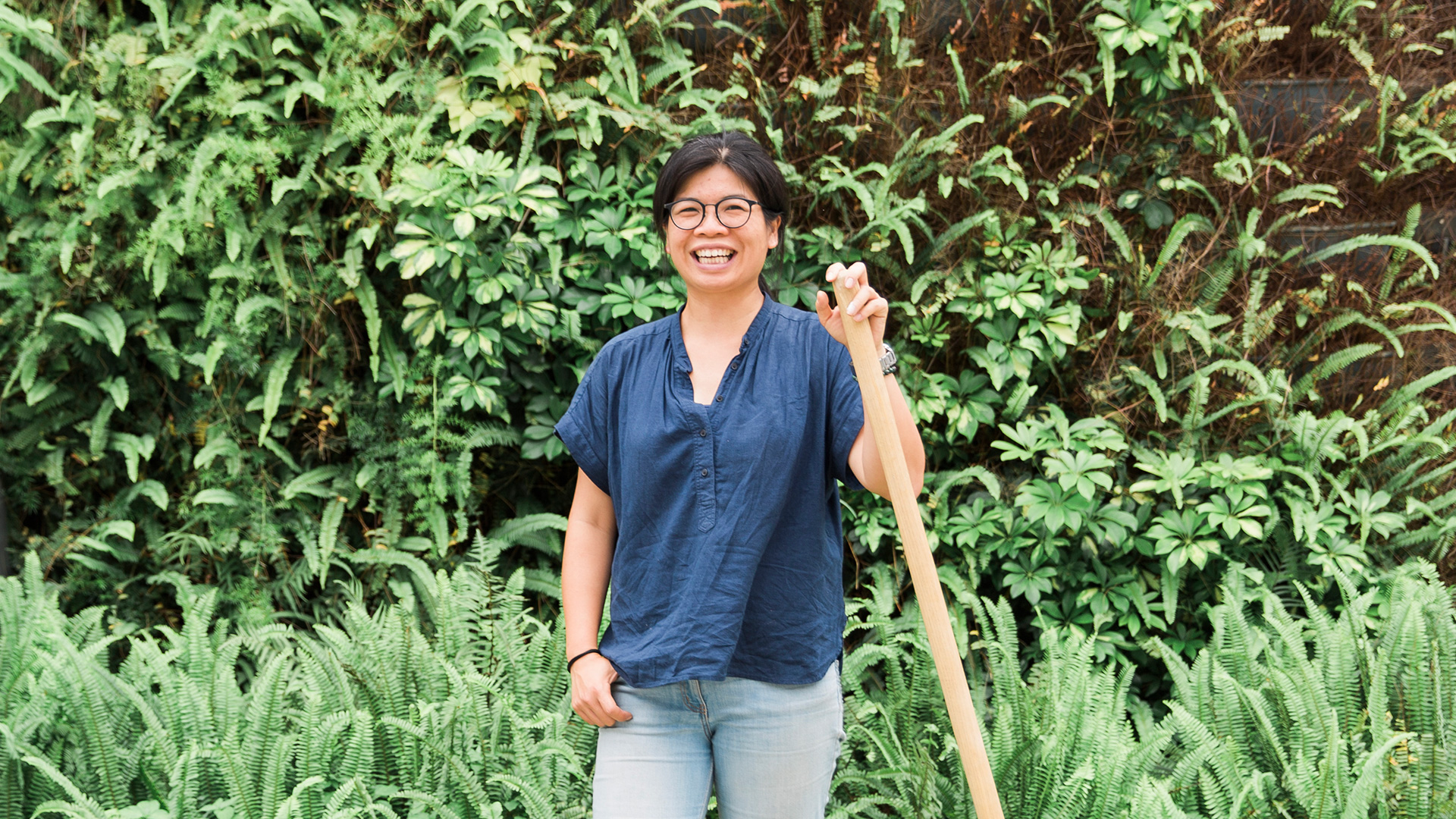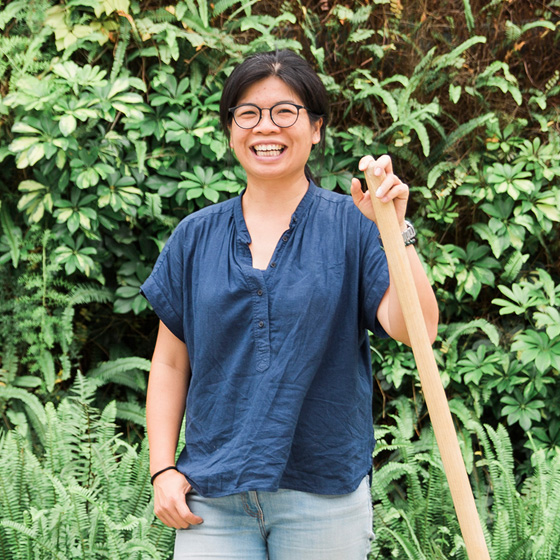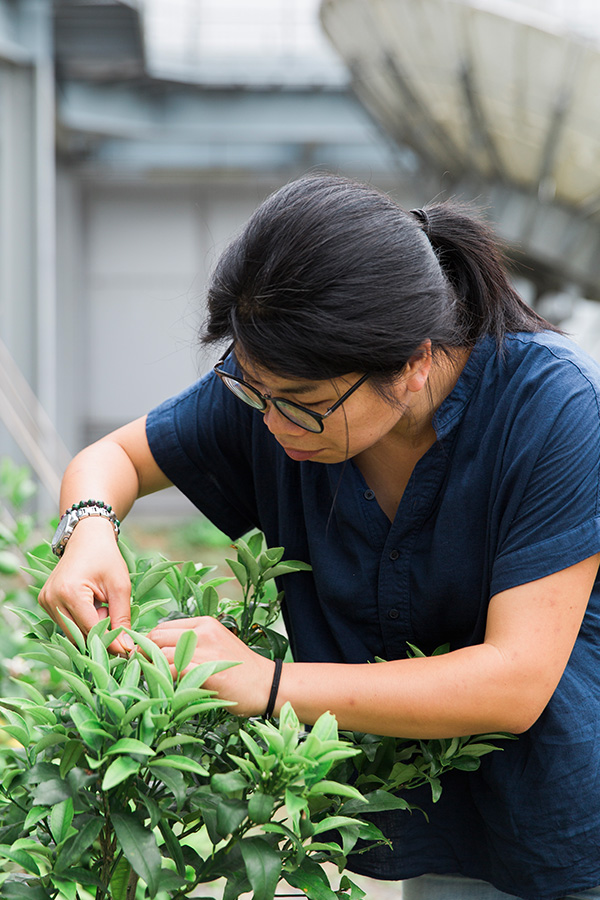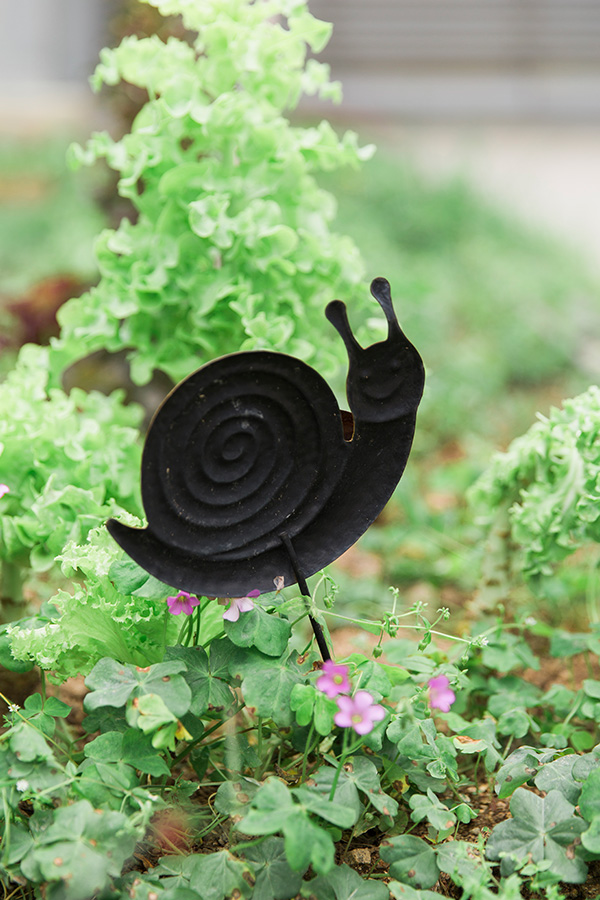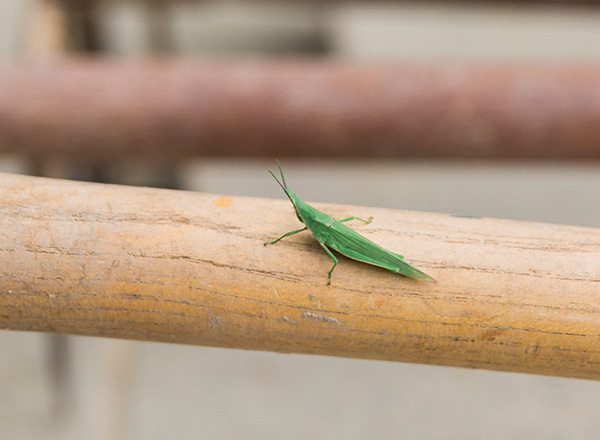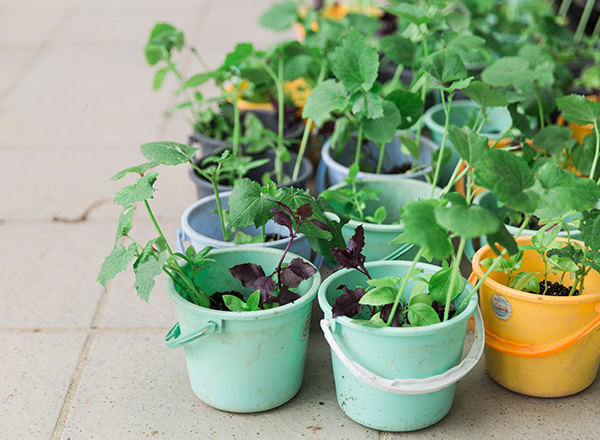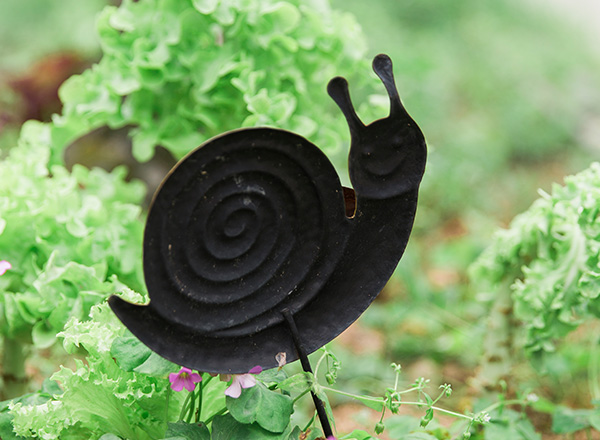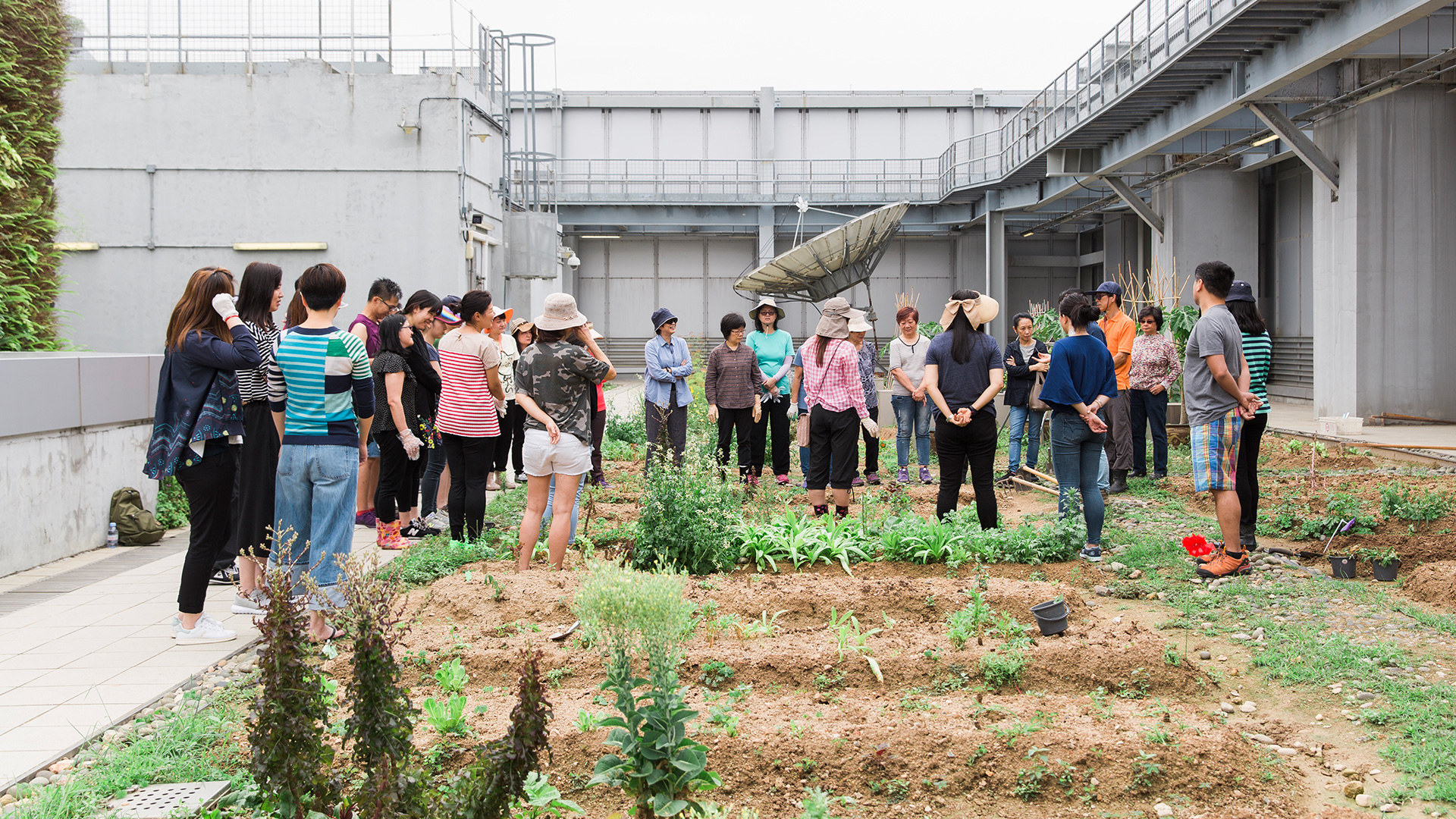“Sometimes I see one or two bees that have made it up here and I feel so lucky. I’m going to build a temple for them.”
A high wall surrounds the farm, sheltering it from high winds, but also creating a unique microclimate with its own wind patterns. Being so high up can have its disadvantages. Bees rarely make the journey 204 metres up, and SEED doesn’t want to risk installing beehives, as the farm is connected to a recreational terrace used by office workers. “It’s a problem for any crops that need pollination, like cucumbers – we have to do it manually,” says Lau. “Sometimes I see one or two bees that have made it up here and I feel so lucky.” She laughs. “I’m going to build a temple for them.”
Like most Hongkongers, Lau grew up without any outdoor space, and she was only exposed to agriculture when she joined SEED eight years ago after studying social sciences. “I mostly do administrative work, but along the way I’ve picked up a lot of farming knowledge,” she says. “I grew up in the 80s, and people my age, we’re concerned about food – everything tastes different than it used to. When you go to the market, the fruit and vegetables have no character at all.”
That’s certainly not true on the roof of Hysan Place. Like all local, small-scale agriculture grown with care and without artificial pesticides and fertilizers, its produce is vibrant and full-flavoured. And its benefits extend beyond tasty meals. “People really enjoy doing this farm work,” says Lau. “You can see it in their faces – at the beginning they are stressed, but when they harvest comes they are so satisfied.”
